Trafficking in Persons Report 2008
Tuesday, 10.06.2008.
16:49

Trafficking in Persons Report 2008 In the document, Serbia is found under Country Narratives; Kosovo, under Special Cases. SERBIA (Tier 2) Serbia is a source, transit, and destination country for women and girls trafficked transnationally and internally for the purpose of commercial sexual exploitation. Foreign victims are trafficked to Serbia from Macedonia, Ukraine, Moldova, Bosnia and Herzegovina, Bulgaria, Romania, Croatia, Albania, and the People’s Republic of China. Serbia continued to serve as a transit country for victims trafficked from Bosnia, Croatia, and Slovenia and destined for Italy and other countries in Western Europe. Internal sex trafficking of Serbian women and girls continued to increase, comprising more than three-fourths of trafficking cases in 2007. Some children continued to be trafficked into forced labor or forced street begging. According to NGOs and law enforcement, efforts to shut down known brothels continued to prompt traffickers to better conceal victims of trafficking. The Government of Serbia does not fully comply with the minimum standards for the elimination of trafficking; however, it is making significant efforts to do so. The government increased national funding for combating trafficking in persons, actively investigated trafficking, prosecuted high-level cases, and took a step in addressing trafficking-related corruption by investigating and charging a state prosecutor for complicity. During the reporting period, the government improved its capacity to assist trafficking victims via the establishment of 11 new municipal teams made up of government officials and NGO representatives. An inefficient judicial system resulted in trials that lasted months or years, and convicted traffickers continued to delay serving their sentences, sometimes by several years, by filing multiple appeals. This sometimes resulted in convicted traffickers remaining free and possibly continuing to exploit victims. Sentences continued to be light in many cases, and did not serve to deter trafficking in Serbia. Although the government expanded its training program to educate law enforcement how to identify victims, concerns remained about victims sometimes not correctly identified and punished as a result of being trafficked. Recommendations for Serbia: Pass implementing legislation as part of the national judicial reform plan, which will streamline the judicial process and ensure convicted traffickers serve their sentences soon after sentencing; continue to address trafficking-related corruption by vigorously prosecuting and punishing officials who facilitate trafficking; amend the penal code to raise minimum penalties for trafficking; provide evidence of vigorous prosecution, conviction, and sentencing of traffickers via comprehensive law enforcement data; implement measures in the National Strategy to Combat Trafficking in Persons, such as the protocol for victim identification and referral; include NGOs in the initial identification phase for potential victims; develop programs to assist the increasingly growing problem of children who are victims of trafficking; and improve prevention efforts, including efforts to reduce demand for commercial sex. Prosecution The Government of Serbia continued its efforts to actively investigate trafficking cases, though its court often imposed insufficient sentences on convicted trafficking offenders. The criminal code for Serbia criminally prohibits sex and labor trafficking in article 388 and prescribes penalties that are sufficiently stringent and commensurate with those prescribed for other grave offenses, such as rape. In 2007, the government investigated and charged 62 persons with trafficking. The government reported at least 23 trafficking convictions during the reporting period. In December 2007, in a high-profile case in Novi Sad, the judge sentenced 11 defendants, including one police officer, to a total of 42 years’ imprisonment, and the defendants are reportedly serving their sentences. In another high profile case, the government investigated and indicted seven traffickers, including the Deputy Public Prosecutor, in Novi Pazar in December 2007. The prosecutor sexually exploited some of the victims and was aware of trafficking abuses they had suffered, including the death of one victim. In 2007, the government investigated a police officer for his role in facilitating the trafficking of a forced labor victim. This trial is scheduled to begin in May 2008. In March 2007, a Belgrade court convicted 12 suspects to a total of 42 years’ imprisonment for trafficking Chinese nationals through Serbia. Most convicted traffickers in Serbia continue to be freed pending appeal and there was at least one case of a convicted trafficker who remained free and continued his trafficking activities. Due to vacancies in the office of the National Coordinator, the government did not provide comprehensive law enforcement data on trafficking prosecutions, convictions, and sentences. Protection The government continued to cooperate with NGOs on victim assistance, but did not provide any funding for NGOs providing victims of trafficking with services such as counseling, legal assistance, and reintegration programs. The Agency for the Coordination of Protection of Victims of Trafficking reported the identification of 60 victims in 2007, including 26 minors; 48 of the 60 were Serbian victims. The government encouraged victims to assist in the investigation and prosecution of traffickers, according to NGOs in Serbia; 90 percent of victims reportedly participated in the investigation of their traffickers. However, many victims refuse to testify in court, out of fear of reprisals by their traffickers. The government used its 2006 Witness Protection Law to protect only one trafficking victim during the year. According to NGOs, trafficking victims were often directly or indirectly forced to testify against traffickers and some courts continue to demonstrate insensitivity to trafficking victims by scheduling victims and their accused traffickers to appear in court together, despite victims’ objections. Serbian law allows victims to file civil suits against traffickers for compensation, but as of March 2008 no trafficking victim had been awarded compensation. Victims pursuing criminal or civil suits are entitled to temporary residence permits and may obtain employment or leave the country pending trial proceedings. The government awarded temporary residence status to a total of six victims in 2007. Identified victims are not detained, jailed, prosecuted, or otherwise penalized for unlawful acts committed as a direct result of their being trafficked. However, one NGO reported that authorities failed to identify some trafficking victims in 2007, resulting in their arrest, detainment, and subsequent deportation. To address this issue, the government expanded its training program for law enforcement. In 2007, thirty-seven trafficking victims were accommodated in two NGO shelters, 21 in a short-term shelter and 16 in transition housing (including two babies). Reintegration services were provided to 47 women and four men (including 22 children). During the reporting period, 11 new municipalities established social assistance teams composed of social workers, police, and NGO staff to provide assistance to potential victims of family violence and trafficking. Prevention The Government of Serbia demonstrated mixed efforts in its prevention activities in 2007. The government has yet to begin implementation of its December 2006 National Strategy to Combat Trafficking in Persons. Furthermore, the government’s anti-trafficking team charged with leading Serbia’s anti-trafficking efforts met only once during the year. However, the government increased its educational prevention programs during the year, and in 2007, launched a fund-raising drive for the Agency for Coordination. It also sponsored a month of anti-trafficking programs on national television during October 2007. Although the government finalized scripts for a project to which it earmarked $100,000 for a 13-episode television series entitled “Modern Slavery,” NGOs expressed concerns about the series being completed. The government did not conduct any awareness campaigns aimed to reduce demand for commercial sex acts. KOSOVO Kosovo is a special case for the 2008 Report because it did not have an effective national government for most of the reporting period. The Kosovo Assembly declared Kosovo to be an independent state on February 17, 2008. Prior to that date and since 1999, Kosovo had been administered by the United Nations Interim Administrative Mission (UNMIK) in Kosovo. Scope and Magnitude: Kosovo is a source, transit, and destination country for women and children trafficked transnationally and within the borders of Kosovo for the purpose of commercial sexual exploitation. There are reports from Kosovo of children being forced to beg, possibly by parents, raising concerns about possible trafficking. Kosovo government statistics indicate that most Kosovo victims are children, while most foreign victims are young women from Eastern Europe. Some victims transit Kosovo en route to Macedonia, Italy, and Albania. Traffickers shifted the commercial sex trade into private homes and escort services to avoid detection, a result of increased law enforcement checks on bars and restaurants. Recommendations for Kosovo: Vigorously investigate and prosecute sex and labor trafficking offenders, as well as public officials complicit in trafficking; sustain efforts to ensure that convicted traffickers receive adequate punishments; provide trafficking specific training for prosecutors; ensure adequate victim protection and that victims are not inappropriately penalized for unlawful acts committed as a result of being trafficked; and continue trafficking prevention activities, including efforts to reduce the demand for commercial sexual exploitation. Government Efforts: Kosovo criminally prohibits sex and labor trafficking through its Provisional Criminal Code of Kosovo, which came into effect in 2004 and prescribes penalties for human trafficking that are sufficiently stringent and commensurate with those prescribed for other grave crimes, such as rape. In the first quarter of 2008 the Kosovo Police Service (KPS) closed 27 suspected brothels, compared to six closed in the same period in 2007, due to suspected trafficking. In 2007, there were 31 prosecutions and 24 convictions of sex traffickers in Kosovo. Twenty-two of those convicted received prison sentences ranging from one year to 20 years’ in prison. One convict was fined and another was paroled. There were no reported investigations or prosecutions of labor trafficking. The government provided training on recognizing and investigating trafficking for police officers and border police, although it acknowledges a lack of awareness of available anti-trafficking tools and legislation among some prosecutors. While there were reports of some officials’ involvement in trafficking, particularly in the area of employment contract registration, there were no reported prosecutions or convictions of any such officials. The Kosovo government, UNMIK, international organizations, and NGOs together developed standard operating procedures governing protection and assistance for trafficking victims. The government reported assisting 33 victims of trafficking in 2007, 14 of whom had been trafficked within Kosovo. The government partially funds one shelter and an assisted living project specifically for child trafficking victims. Domestic and foreign victims received protection and access to medical and psychological services through the government-run and funded shelter and IOM, as well as through NGOs offering additional shelters and services to victims. During the last year, the Ministry of Justice did not renew funding for additional NGOs it had funded in previous years. The government was able to provide 24-hour protection of limited duration to victims and allows victims to give anonymous testimony, but witness intimidation remained a serious problem in Kosovo. While regulations protect victims from being charged with unlawful acts committed as a result of being trafficked, there is anecdotal evidence that victims may have nonetheless been jailed or automatically deported for prostitution offenses. Victims of trafficking have legal alternatives to removal to countries where they face hardship or retribution through the granting of refugee status and approval of residency permits. The government reports that victims are not pressured to assist in investigation and prosecution of traffickers. Most anti-trafficking awareness campaigns were run by international organizations and NGOs with the government’s support. IOM and the Ministry of Justice sponsored anti-trafficking hotlines. In July 2007, the Prime Minister approved an initiative declaring October to be national trafficking awareness month. Officials participated in several roundtables and panel discussions on human trafficking, and the Ministry of Education, Science and Technology took part in a regional project to help parents prevent children from becoming trafficking victims. The Prime Minister’s Advisory Office for Good Governance coordinates communication among counter-trafficking entities in Kosovo, including the relevant ministries, NGOs and international organizations. The national action plan expired in December 2006 with several goals unfulfilled. Kosovo’s mayors are leading a campaign to address the illegal sex trade. The U.S. Department of State has issued its annual report on trafficking in persons worldwide. The U.S. Department of State has issued its annual report on trafficking in persons worldwide. In the document, Serbia is found under Country Narratives; Kosovo, under Special Cases.
Trafficking in Persons Report 2008
In the document, Serbia is found under Country Narratives; Kosovo, under Special Cases.SERBIA (Tier 2)
Serbia is a source, transit, and destination country for women and girls trafficked transnationally and internally for the purpose of commercial sexual exploitation. Foreign victims are trafficked to Serbia from Macedonia, Ukraine, Moldova, Bosnia and Herzegovina, Bulgaria, Romania, Croatia, Albania, and the People’s Republic of China.
Serbia continued to serve as a transit country for victims trafficked from Bosnia, Croatia, and Slovenia and destined for Italy and other countries in Western Europe. Internal sex trafficking of Serbian women and girls continued to increase, comprising more than three-fourths of trafficking cases in 2007. Some children continued to be trafficked into forced labor or forced street begging.
According to NGOs and law enforcement, efforts to shut down known brothels continued to prompt traffickers to better conceal victims of trafficking. The Government of Serbia does not fully comply with the minimum standards for the elimination of trafficking; however, it is making significant efforts to do so. The government increased national funding for combating trafficking in persons, actively investigated trafficking, prosecuted high-level cases, and took a step in addressing trafficking-related corruption by investigating and charging a state prosecutor for complicity.
During the reporting period, the government improved its capacity to assist trafficking victims via the establishment of 11 new municipal teams made up of government officials and NGO representatives. An inefficient judicial system resulted in trials that lasted months or years, and convicted traffickers continued to delay serving their sentences, sometimes by several years, by filing multiple appeals. This sometimes resulted in convicted traffickers remaining free and possibly continuing to exploit victims. Sentences continued to be light in many cases, and did not serve to deter trafficking in Serbia.
Although the government expanded its training program to educate law enforcement how to identify victims, concerns remained about victims sometimes not correctly identified and punished as a result of being trafficked.
Recommendations for Serbia: Pass implementing legislation as part of the national judicial reform plan, which will streamline the judicial process and ensure convicted traffickers serve their sentences soon after sentencing; continue to address trafficking-related corruption by vigorously prosecuting and punishing officials who facilitate trafficking; amend the penal code to raise minimum penalties for trafficking; provide evidence of vigorous prosecution, conviction, and sentencing of traffickers via comprehensive law enforcement data; implement measures in the National Strategy to Combat Trafficking in Persons, such as the protocol for victim identification and referral; include NGOs in the initial identification phase for potential victims; develop programs to assist the increasingly growing problem of children who are victims of trafficking; and improve prevention efforts, including efforts to reduce demand for commercial sex.
Prosecution
The Government of Serbia continued its efforts to actively investigate trafficking cases, though its court often imposed insufficient sentences on convicted trafficking offenders. The criminal code for Serbia criminally prohibits sex and labor trafficking in article 388 and prescribes penalties that are sufficiently stringent and commensurate with those
prescribed for other grave offenses, such as rape. In 2007, the government investigated and charged 62 persons with trafficking. The government reported at least 23 trafficking convictions during the reporting period. In December 2007, in a high-profile case
in Novi Sad, the judge sentenced 11 defendants, including one police officer, to a total of 42 years’ imprisonment, and the defendants are reportedly serving their sentences. In another high profile case, the government investigated and indicted seven traffickers, including the Deputy Public Prosecutor, in Novi Pazar in December 2007.
The prosecutor sexually exploited some of the victims and was aware of trafficking abuses they had suffered, including the death of one victim. In 2007, the government investigated a police officer for his role in facilitating the trafficking of a forced labor victim. This trial is scheduled to begin in May 2008. In March 2007, a Belgrade court convicted 12 suspects to a total of 42 years’ imprisonment for trafficking Chinese nationals through Serbia. Most convicted traffickers in Serbia continue to be freed pending appeal and there was at least one case of a convicted trafficker who remained free and continued his trafficking activities. Due to vacancies in the office of the National Coordinator, the government did not provide comprehensive law enforcement data on trafficking prosecutions, convictions, and sentences.
Protection
The government continued to cooperate with NGOs on victim assistance, but did not provide any funding for NGOs providing victims of trafficking with services such as counseling, legal assistance, and reintegration programs. The Agency for the Coordination of Protection of Victims of Trafficking reported the identification of 60 victims in 2007, including 26 minors; 48 of the 60 were Serbian victims. The government encouraged victims to assist in the investigation and prosecution of traffickers, according to NGOs in Serbia; 90 percent of victims reportedly participated in the investigation of their traffickers. However, many victims refuse to testify in court, out of fear of reprisals by their traffickers. The government used its 2006 Witness Protection Law to protect only one trafficking victim during the year.
According to NGOs, trafficking victims were often directly or indirectly forced to testify against traffickers and some courts continue to demonstrate insensitivity to trafficking victims by scheduling victims and their accused traffickers to appear in court together, despite victims’ objections. Serbian law allows victims to file civil suits against traffickers
for compensation, but as of March 2008 no trafficking victim had been awarded compensation. Victims pursuing criminal or civil suits are entitled to temporary residence permits and may obtain employment or leave the country pending trial proceedings. The
government awarded temporary residence status to a total of six victims in 2007. Identified victims are not detained, jailed, prosecuted, or otherwise penalized for unlawful acts committed as a direct result of their being trafficked.
However, one NGO reported that authorities failed to identify some trafficking victims in 2007, resulting in their arrest, detainment, and subsequent deportation. To address this issue, the government expanded its training program for law enforcement. In 2007, thirty-seven trafficking victims were accommodated in two NGO shelters, 21 in a short-term shelter and 16 in transition housing (including two babies). Reintegration services were provided to 47 women and four men (including 22 children). During the reporting period, 11 new municipalities established social assistance teams composed of social workers, police, and NGO staff to provide assistance to potential victims of family violence and trafficking.
Prevention
The Government of Serbia demonstrated mixed efforts in its prevention activities in 2007. The government has yet to begin implementation of its December 2006 National Strategy to Combat Trafficking in Persons. Furthermore, the government’s anti-trafficking team charged with leading Serbia’s anti-trafficking efforts met only once during the year. However, the government increased its educational prevention programs during the year, and in 2007, launched a fund-raising drive for the Agency for Coordination.
It also sponsored a month of anti-trafficking programs on national television during October 2007. Although the government finalized scripts for a project to which it earmarked $100,000 for a 13-episode television series entitled “Modern Slavery,” NGOs expressed concerns about the series being completed. The government did not conduct any awareness campaigns aimed to reduce demand for commercial sex acts.
KOSOVO
Kosovo is a special case for the 2008 Report because it did not have an effective national government for most of the reporting period. The Kosovo Assembly declared Kosovo to be an independent state on February 17, 2008. Prior to that date and since 1999, Kosovo had been administered by the United Nations Interim Administrative Mission (UNMIK) in Kosovo.
Scope and Magnitude: Kosovo is a source, transit, and destination country for women and children trafficked transnationally and within the borders of Kosovo for the purpose of commercial sexual exploitation. There are reports from Kosovo of children being forced to beg, possibly by parents, raising concerns about possible trafficking. Kosovo government statistics indicate that most Kosovo victims are children, while most foreign victims are
young women from Eastern Europe. Some victims transit Kosovo en route to Macedonia, Italy, and Albania. Traffickers shifted the commercial sex trade into private homes and escort services to avoid detection, a result of increased law enforcement checks on bars and restaurants.
Recommendations for Kosovo: Vigorously investigate and prosecute sex and labor trafficking offenders, as well as public officials complicit in trafficking; sustain efforts to ensure that convicted traffickers receive adequate punishments; provide trafficking specific training for prosecutors; ensure adequate victim protection and that victims are not inappropriately penalized for unlawful acts committed as a result of being trafficked; and continue trafficking prevention activities, including efforts to reduce the demand for commercial sexual exploitation.
Government Efforts: Kosovo criminally prohibits sex and labor trafficking through its Provisional Criminal Code of Kosovo, which came into effect in 2004 and prescribes penalties for human trafficking that are sufficiently stringent and commensurate with those prescribed for other grave crimes, such as rape. In the first quarter of 2008 the Kosovo Police Service (KPS) closed 27 suspected brothels, compared to six closed in the same period in 2007, due to suspected trafficking. In 2007, there were 31 prosecutions and 24 convictions of sex traffickers in Kosovo. Twenty-two of those convicted received prison sentences ranging from one year to 20 years’ in prison. One convict was fined and another was paroled. There were no reported investigations or prosecutions of labor trafficking.
The government provided training on recognizing and investigating trafficking for police officers and border police, although it acknowledges a lack of awareness of available anti-trafficking tools and legislation among some prosecutors. While there were reports of some officials’ involvement in trafficking, particularly in the area of employment contract registration, there were no reported prosecutions or convictions of any such officials. The Kosovo government, UNMIK, international organizations, and NGOs together developed standard operating procedures governing protection and assistance for trafficking victims. The government reported assisting 33 victims of trafficking in 2007, 14 of whom had been trafficked within Kosovo. The government partially funds one shelter and an assisted living project specifically for child trafficking victims.
Domestic and foreign victims received protection and access to medical and psychological services through the government-run and funded shelter and IOM, as well as through NGOs offering additional shelters and services to victims. During the last year, the Ministry of Justice did not renew funding for additional NGOs it had funded in previous years. The government was able to provide 24-hour protection of limited duration to victims and allows victims to give anonymous testimony, but witness intimidation remained a serious problem in Kosovo.
While regulations protect victims from being charged with unlawful acts committed as a result of being trafficked, there is anecdotal evidence that victims may have nonetheless been jailed or automatically deported for prostitution offenses. Victims of trafficking have legal alternatives to removal to countries where they face hardship or retribution through the granting of refugee status and approval of residency permits. The government reports that victims are not pressured to assist in investigation and prosecution of traffickers.
Most anti-trafficking awareness campaigns were run by international organizations and NGOs with the government’s support. IOM and the Ministry of Justice sponsored anti-trafficking hotlines. In July 2007, the Prime Minister approved an initiative declaring October to be national trafficking awareness month. Officials participated in several roundtables and panel discussions on human trafficking, and the Ministry of Education, Science and Technology took part in a regional project to help parents prevent children from becoming trafficking victims.
The Prime Minister’s Advisory Office for Good Governance coordinates communication among counter-trafficking entities in Kosovo, including the relevant ministries, NGOs and international organizations. The national action plan expired in December 2006 with several goals unfulfilled. Kosovo’s mayors are leading a campaign to address the illegal sex trade.


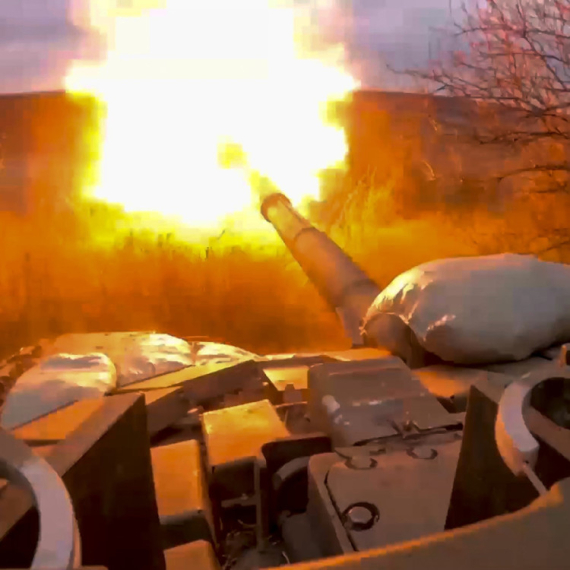
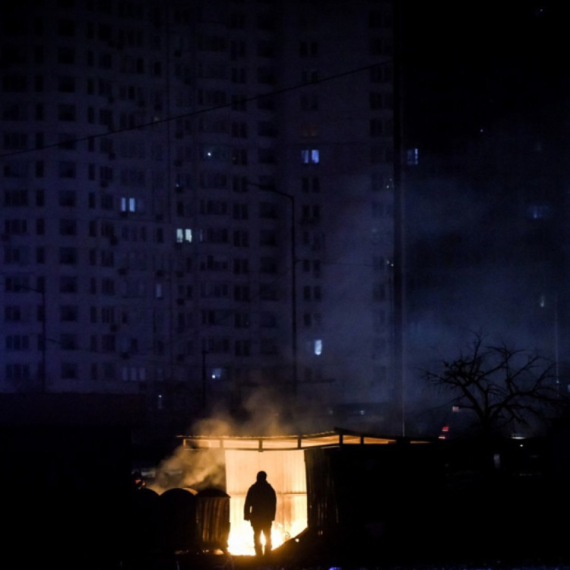

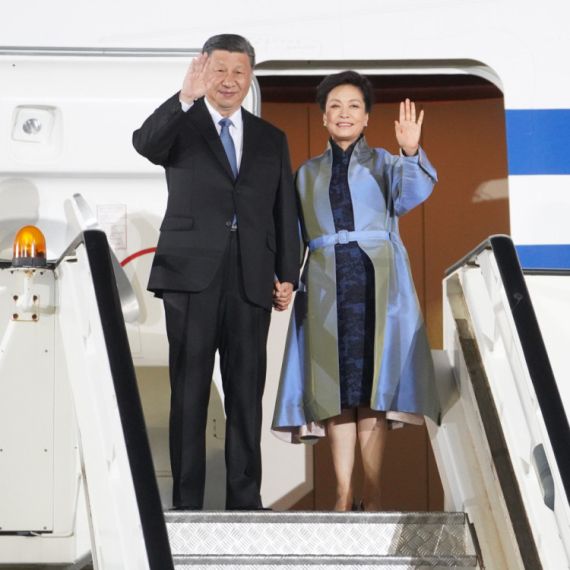










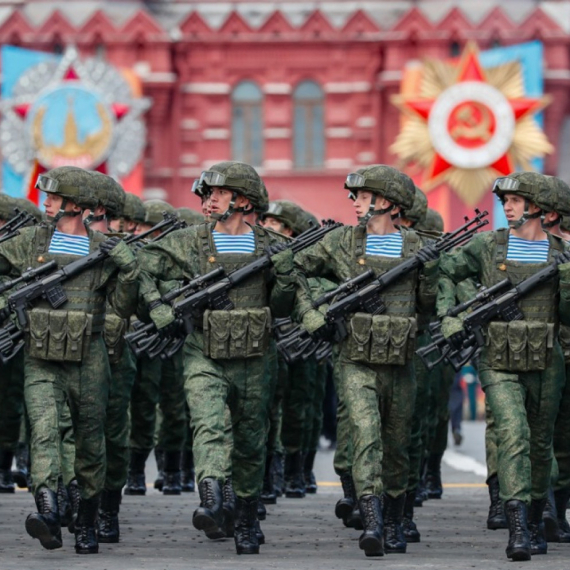


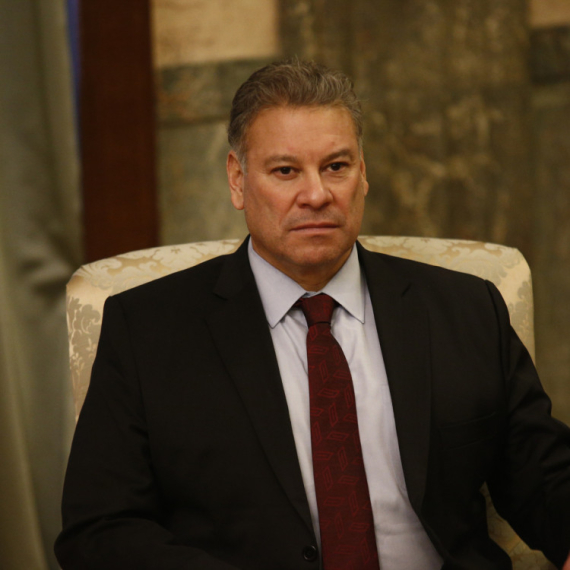







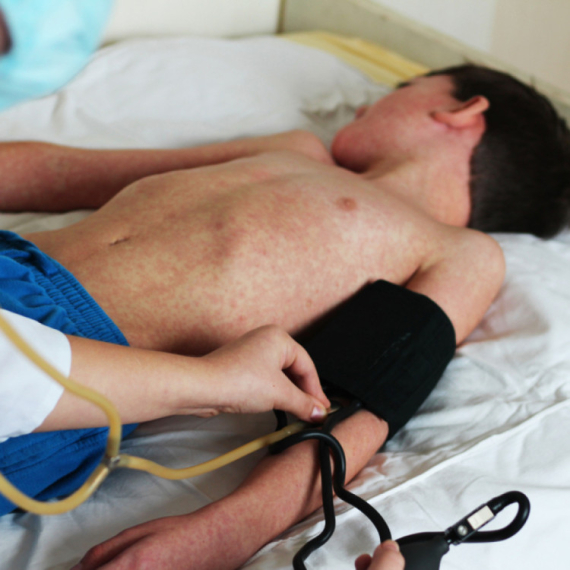
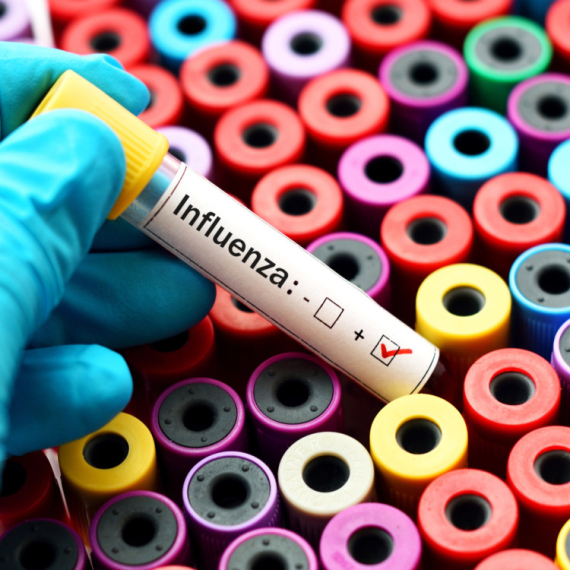



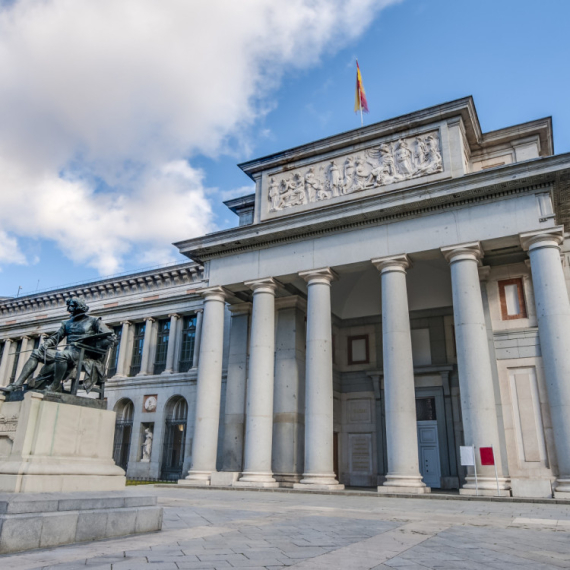


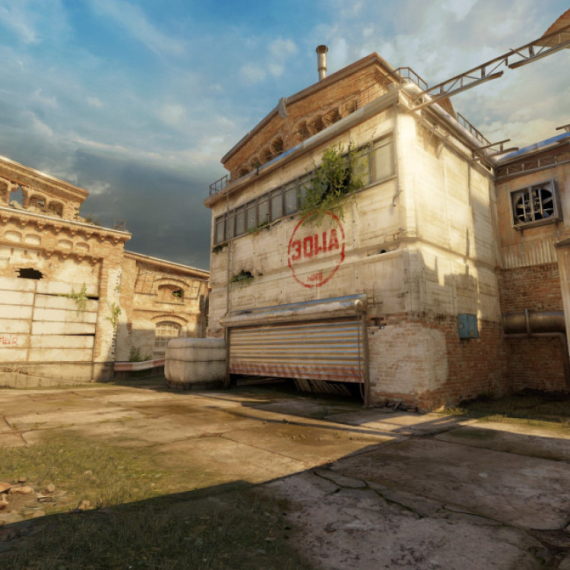




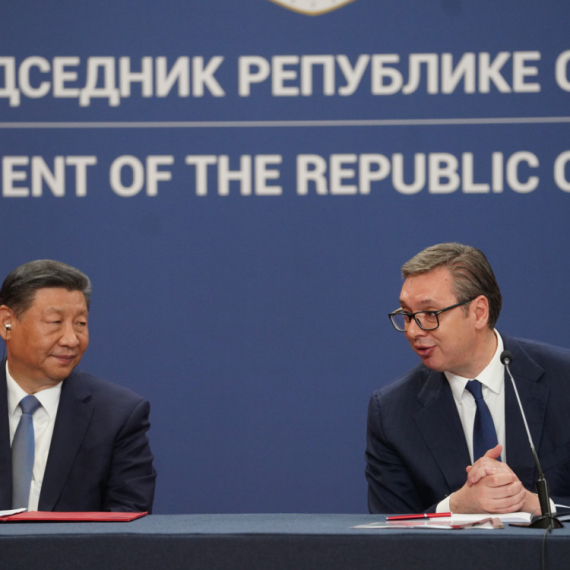
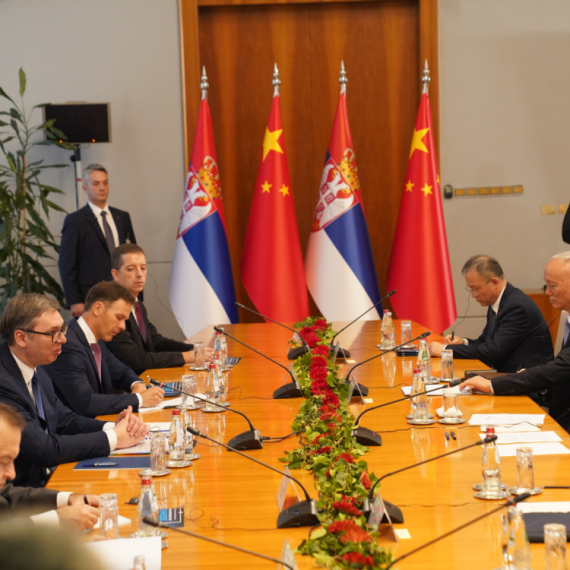
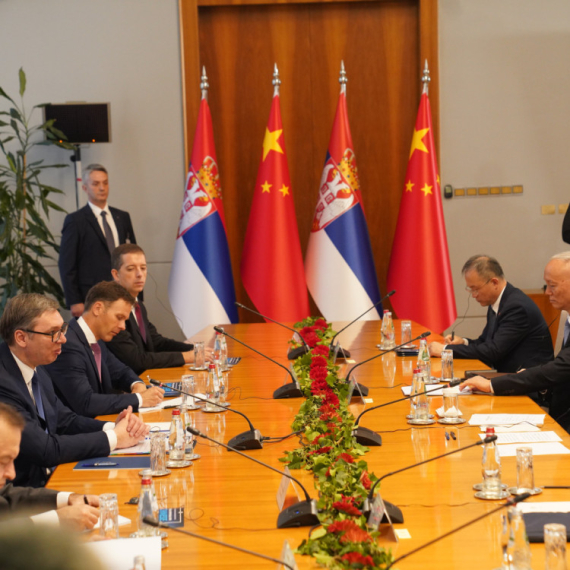
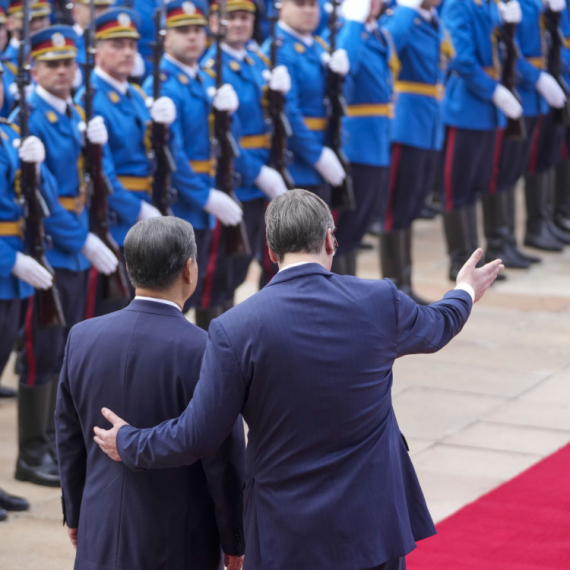











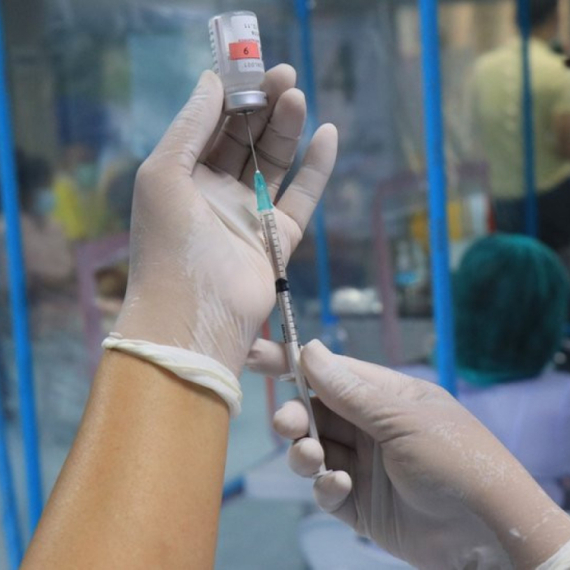

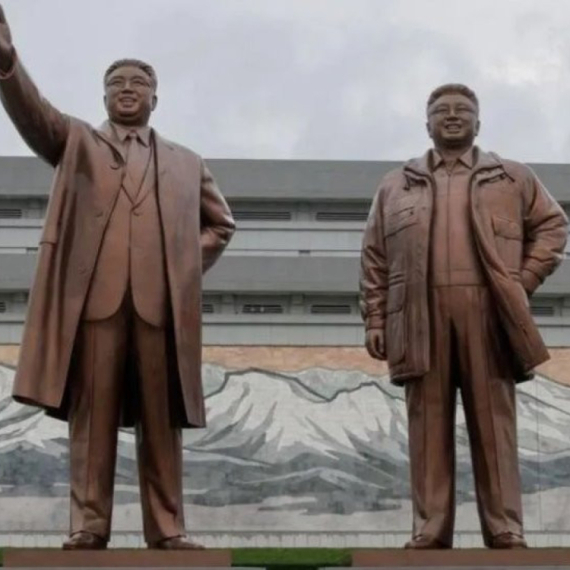


Komentari 1
Pogledaj komentare